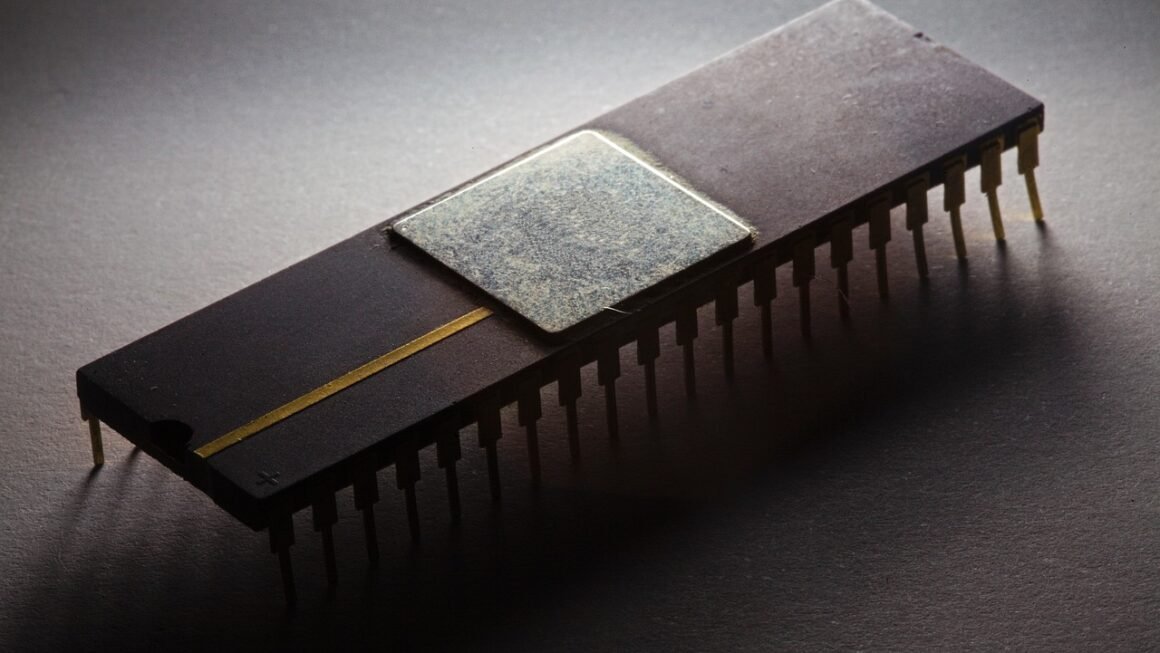Biotechnology is transforming industries and reshaping our understanding of life itself. From developing life-saving medicines to engineering sustainable agricultural practices, its potential is limitless. This post will delve into the fascinating world of biotechnology, exploring its various applications, ethical considerations, and future directions.
What is Biotechnology?
Defining Biotechnology
Biotechnology, at its core, involves using living organisms or their components to create products or processes. This encompasses a wide range of disciplines, including genetics, molecular biology, biochemistry, and cell biology. It’s not just about complex lab work; biotechnology has been around for centuries, albeit in simpler forms, like using yeast for brewing beer or bacteria for fermenting cheese.
A Brief History of Biotechnology
The roots of biotechnology can be traced back thousands of years:
- Ancient Biotechnology: Fermentation processes for food preservation and beverage production.
- Classical Biotechnology: Selective breeding of plants and animals for desired traits.
- Modern Biotechnology: Emerged in the 20th century with the discovery of DNA structure and recombinant DNA technology, enabling precise genetic manipulation.
The Scope of Biotechnology
Biotechnology applications are incredibly diverse:
- Healthcare: Development of drugs, diagnostics, and therapies.
- Agriculture: Engineering crops for improved yield, pest resistance, and nutritional value.
- Environment: Bioremediation of pollutants and development of sustainable energy sources.
- Industrial Biotechnology: Production of biofuels, bioplastics, and other bio-based products.
Biotechnology in Healthcare
Drug Discovery and Development
Biotechnology plays a crucial role in identifying and developing new drugs:
- Recombinant DNA technology: Allows for the production of therapeutic proteins like insulin and growth hormone in large quantities.
- Monoclonal antibodies: Highly specific antibodies used to target and destroy cancer cells or neutralize harmful pathogens. An example is trastuzumab (Herceptin) for HER2-positive breast cancer.
- Gene therapy: Correcting or replacing faulty genes to treat genetic diseases. Clinical trials for diseases like spinal muscular atrophy have shown promising results.
Diagnostics and Personalized Medicine
Biotechnology enables more accurate and personalized diagnostics:
- Genetic testing: Identifying individuals at risk for certain diseases or predicting their response to specific medications.
- Molecular diagnostics: Detecting infectious agents like viruses and bacteria with high sensitivity and specificity, such as PCR tests for COVID-19.
- Personalized medicine: Tailoring treatment plans based on an individual’s genetic makeup and other factors.
Regenerative Medicine
Biotechnology offers hope for repairing damaged tissues and organs:
- Stem cell therapy: Using stem cells to regenerate damaged tissues and organs. Bone marrow transplantation is a well-established example.
- Tissue engineering: Creating functional tissues and organs in the lab for transplantation. Skin grafts are a successful example of tissue engineering.
Biotechnology in Agriculture
Genetically Modified (GM) Crops
GM crops are engineered to possess desirable traits:
- Herbicide resistance: Allows farmers to use herbicides to control weeds without harming the crop. Roundup Ready crops are a prime example.
- Insect resistance: Reduces the need for pesticides by incorporating genes that produce insecticidal proteins, like Bt corn.
- Enhanced nutritional value: Golden Rice, engineered to produce beta-carotene, a precursor to Vitamin A, is aimed at addressing Vitamin A deficiency in developing countries.
Sustainable Agriculture
Biotechnology contributes to more sustainable agricultural practices:
- Nitrogen fixation: Engineering crops to fix nitrogen from the atmosphere, reducing the need for synthetic fertilizers.
- Biopesticides: Using naturally occurring microorganisms or their products to control pests.
- Improved water use efficiency: Developing crops that are more drought-tolerant, conserving water resources.
Increased Crop Yields
By implementing techniques like genetic modification, yields for crops like corn and soybeans have dramatically increased over the past decades. This contributes significantly to global food security.
Biotechnology and the Environment
Bioremediation
Biotechnology offers solutions for cleaning up environmental pollution:
- Using microorganisms to degrade pollutants: Bacteria can be engineered to break down harmful substances like oil spills and heavy metals. An example is using bacteria to clean up oil spills after the Deepwater Horizon disaster.
- Phytoremediation: Using plants to remove pollutants from soil and water. Certain plants can accumulate heavy metals, effectively cleaning up contaminated sites.
Biofuels
Biotechnology is crucial for developing sustainable energy sources:
- Ethanol production from biomass: Using enzymes to break down cellulose into sugars, which are then fermented into ethanol.
- Biodiesel production from algae: Algae can be engineered to produce large quantities of oils that can be converted into biodiesel.
Waste Management
Biotechnology can improve waste management processes:
- Composting: Using microorganisms to decompose organic waste into nutrient-rich compost.
- Anaerobic digestion: Using microorganisms to break down organic waste in the absence of oxygen, producing biogas, a renewable energy source.
Ethical Considerations and Future Directions
Ethical Concerns
Biotechnology raises several ethical concerns:
- GM crops: Concerns about potential environmental impacts, allergenicity, and corporate control of the food supply.
- Gene editing: Concerns about the safety, long-term effects, and potential for misuse of gene editing technologies like CRISPR.
- Access and equity: Ensuring that the benefits of biotechnology are accessible to all, regardless of socioeconomic status.
Future Trends
The future of biotechnology is bright and full of potential:
- CRISPR technology: Revolutionizing gene editing with its precision and efficiency, opening up new possibilities for treating genetic diseases and developing novel therapies.
- Synthetic biology: Designing and building new biological systems and components with novel functions, leading to new applications in medicine, agriculture, and industry.
- Nanobiotechnology: Combining nanotechnology and biotechnology to create new diagnostic tools, drug delivery systems, and biosensors.
Conclusion
Biotechnology is a rapidly evolving field with immense potential to address some of the world’s most pressing challenges. From revolutionizing healthcare to transforming agriculture and protecting the environment, its impact is far-reaching. By carefully considering the ethical implications and fostering responsible innovation, we can harness the power of biotechnology to create a healthier, more sustainable future.



